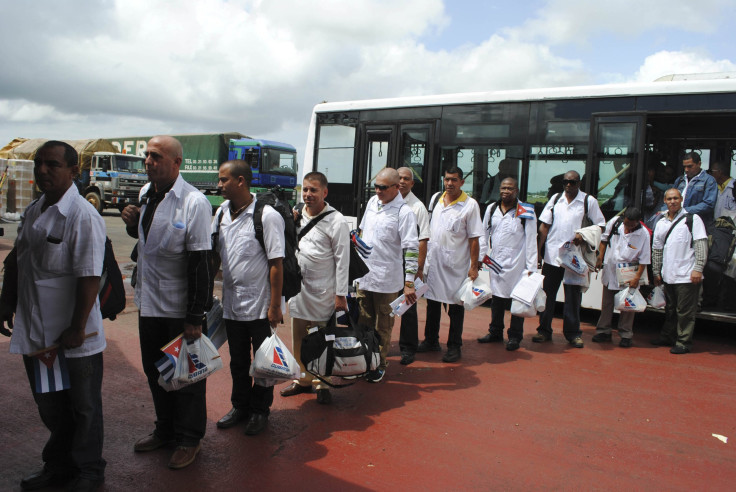Ebola Outbreak 2014: West Africa Needs 5,000 More Health Workers To Fight Virus: Report

West Africa needs more than 5,000 additional health care workers if the Ebola outbreak is to be controlled, the president of the World Bank, Jim Yong Kim, said Tuesday. Officials said they were concerned that fear of the virus could keep health workers in Africa away from the countries most affected by Ebola, and that mandatory quarantines in the U.S. for returning nurses and doctors could deter American health workers from going abroad to fight the virus.
"We need to have a steady stream of health care workers from Africa coming into the three affected countries,” Jim said during a meeting with U.N. Secretary-General Ban Ki-moon and African Union Chairwoman Nkosazana Dlamini-Zuma in Ethiopia, according to the Associated Press. "Right now, I'm very much worried about where we will find those health care workers. With the fear factor going out of control in so many places, I hope health care professionals will understand that when they took their oath to become a health care worker it was precisely for moments like this," he said.
Ban asked African Union member states not to impose travel restrictions or to close their borders, something that could limit the number of health care workers across the continent going to West Africa. Dlamini-Zuma said several states have offered to send more than 2,000 additional health care workers to the affected region, however, she didn't say when, according to the AP.
The death toll from Ebola in West Africa is approaching 5,000 people, according to the World Health Organization. There have been an additional 5,000 known cases in eight countries as of Oct. 23, bringing the total number of infections to around 10,000. Liberia is the epicenter of the outbreak with more than 60 percent of all cases, followed by Sierra Leone and Guinea. Nigeria had about 20 cases, but health workers there were able to stop the spread of the virus. WHO recently declared the country free of Ebola.
In the U.S., some health workers who travel to West Africa to help fight the Ebola outbreak face being isolated for 21 days in their apartments or a health facility upon returning to the country, regardless of whether they are symptomatic. Several U.S. states, including Connecticut and New Jersey, have already quarantined returning health workers who were asymptomatic, sparking criticism from some health experts who say the compulsory quarantines aren't rooted in science and are politically motivated.
© Copyright IBTimes 2024. All rights reserved.






















